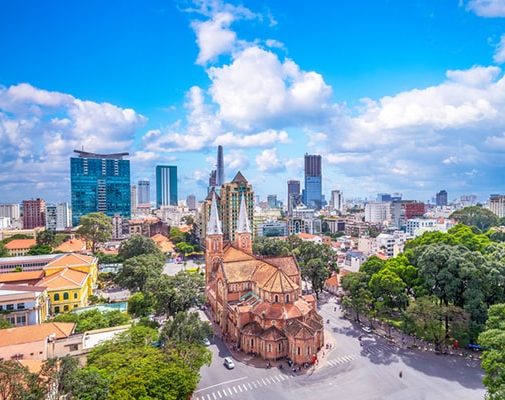John S. Says:
What’s involved for an American to gain residency in Vietnam? Own property?
IL Executive Editor Jennifer Stevens Says:
 Hi John,
Hi John,
Vietnam is one of the most spectacular countries on earth. It has more than a thousand miles of coastline, gorgeous mountains, forests, waterfalls, and amazing caves. The cuisine is famous for being not only delicious but good for you, too. It has vibrant and dynamic cities. The culture is a fascinating mix of ancient and modern, with influences still evident from its tumultuous history with the Chinese, the French, and the U.S.
It’s a wonderful country to visit for a short stay, but for the vast majority of remote workers and retirees, it’s quite difficult to stay long-term… at least at this time.
At the time of writing, it isn’t possible to get a visa for tourism purposes with a validity of longer than 30 days, and Vietnam does not offer a retirement visa.
Options are currently very limited if you want to remain in Vietnam long-term. The most common way is to possess a business visa, but this is no longer the easy process it once was.
You need to be sponsored by a legitimate Vietnamese company willing to provide the proper documentation, have a bachelor’s degree or higher strictly relevant to the job you are hired for, and be able to prove several years’ experience working outside of Vietnam in the same field. Additionally, you need to provide police and FBI reports and a clean medical declaration.
If you want to open a business or invest in the country, you could be eligible for an investor’s visa, though the types of eligible businesses are limited and the financial requirements are high. The minimum required investment for a one-year visa is $128,408 (3 billion Vietnamese dong). Any investment less than this, if approved, would only allow for a stay of less than one year. You would also need to budget at least $2,000 to pay an agent or attorney, and for registration and licensing fees.
Unfortunately, buying real estate in Vietnam does not meet the requirements for an investor’s visa or any other type of visa, regardless of the amount invested.
Speaking of real estate, Vietnam had long been closed to foreign property investors, but the laws changed in 2015. Now foreigners who are in the country with a visa that is valid for at least three months can own property in Vietnam.
The term “ownership,” though, does not imply that a foreigner can own a property outright, unless they are a Vietnamese returning from overseas (Việt Kiều). Instead, foreigners are able to purchase a 50-year lease on a property, which can be extended for an additional 50 years.
Only properties that are located in a subdivision within an authorized project are available for foreign purchase. The majority of these eligible properties are in condominium complexes or resorts that are being constructed and marketed with foreign purchasers in mind.
Vietnam remains one of the most beautiful places in the world, and a place we at International Living are watching closely. The country’s visa and residency laws used to be much friendlier, and there is a chance they will be so again.
As soon as Vietnam opens up again, we’ll let you and all of our readers know.
Got a Question?
Send your thoughts to mailbag@internationalliving.com. We’ll post and respond to as many of your emails as we can right here in the e-letter.


